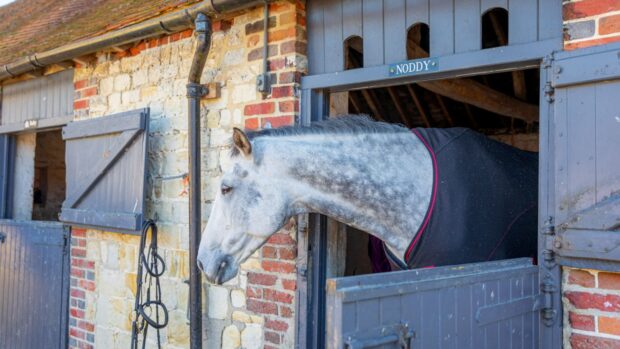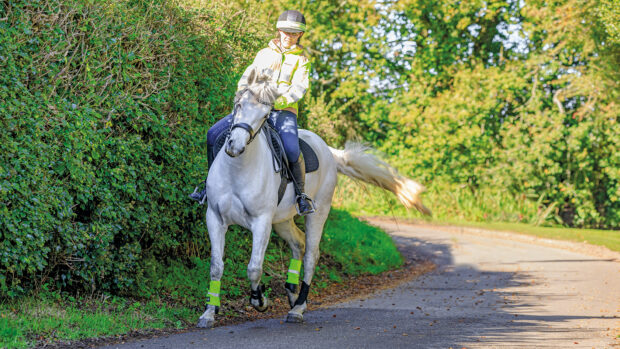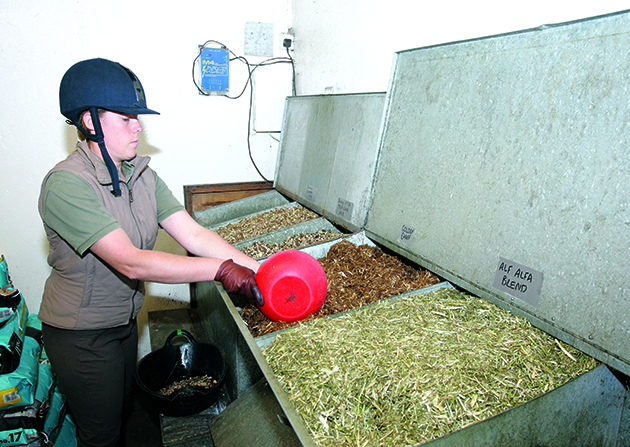Cold weather, rain and grazing low in nutrients — the winter months can prove a feeding challenge for most owners. But these tips on feeding horses in winter can help keep your horse in peak condition
1. Older horses, particularly those with poor teeth, can struggle in the winter and lose condition dramatically. Soaked fibre-replacement feeds are a good addition or alternative to forage when chewing becomes difficult. Teeth should be checked regularly and intake should be monitored. Signs that may indicate poorer dental health can include loose droppings, reduced appetite, long strands of fibre in the droppings or partially chewed and balled up fibres (quidding).
2. From an evolutionary perspective, winter is the season when horses in the wild would slim down by drawing on their fat reserves as the cold weather bites. So, don’t be too quick to supplement the diet of your horses and ponies if they go into winter a bit on the plump side.
3. Maintaining weight is a challenge that worries many owners during the winter months. A feed supplement high in oil can help to boost the calorie intake. Some horses and ponies do increased amounts of work in the winter, particularly those who hunt or continue to compete indoors. As such, feed intake needs to increase to compensate for a higher workload. For those with a tendency to hot up, the best approach is to look for higher energy feeds that are low in starch, but high in digestible fibre and oil. A fibre-based feed that combines chopped high temperature dried grasses and alfalfa with a light molasses and oil coating can be used as a total forage replacer for veteran horses than struggle to chew their normal forage ration.
4. Horses have a strong inbuilt desire to chew and it is difficult to satisfy this in horses stabled 24/7 during the winter months. If ignored, behavioural issues such as wood chewing, windsucking and weaving may ensue. Serious health issues such as colic or gastric ulcers can pose a risk, too. Therefore, access to forage must be plentiful, ideally a constant supply, along with fresh water. Supplementary hay or haylage should also be provided in the field when grazing quality is reduced over the winter months.
5. For horses that have a history of tying-up, the winter’s disjointed and irregular work patterns can be a big problem, especially when associated with an increase in quantity of feed to maintain condition. Regularity of work is important as well as allowing plenty of time to warm up and cool down. A well-balanced diet is essential, but a concentrate that is low in both starch and sugar can be beneficial. An electrolyte supplement should also be provided for feeding horses in winter whenever the horse is working hard enough to sweat, and water intake should be monitored.
You might also be interested in:

How to save money on horse feed this winter without skimping

How to reduce your hay bill this winter

Know your forage: which is the perfect type for your horse?

Subscribe to Horse & Hound magazine today – and enjoy unlimited website access all year round
Horse & Hound magazine, out every Thursday, is packed with all the latest news and reports, as well as interviews, specials, nostalgia, vet and training advice. Find how you can enjoy the magazine delivered to your door every week, plus options to upgrade your subscription to access our online service that brings you breaking news and reports as well as other benefits.





